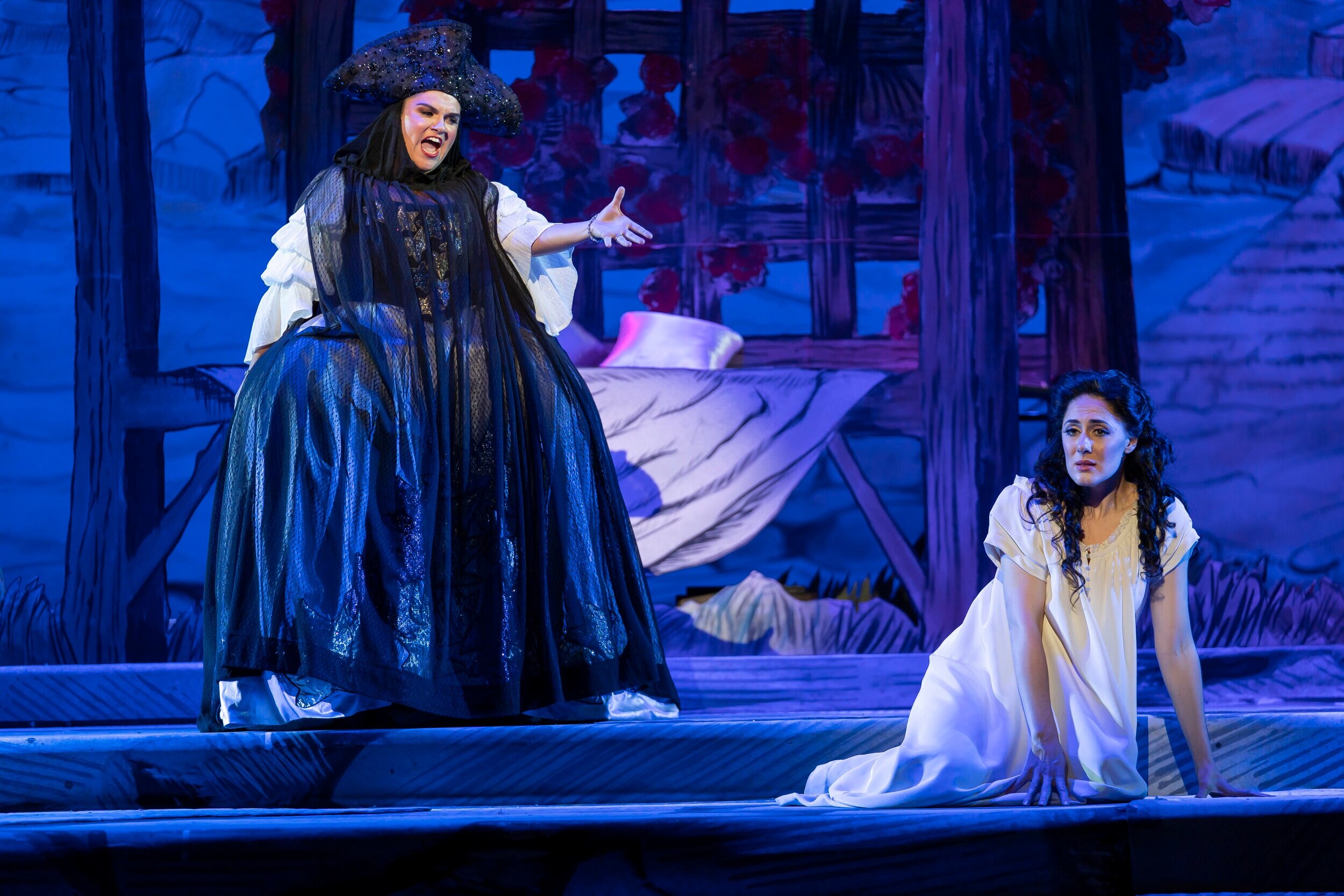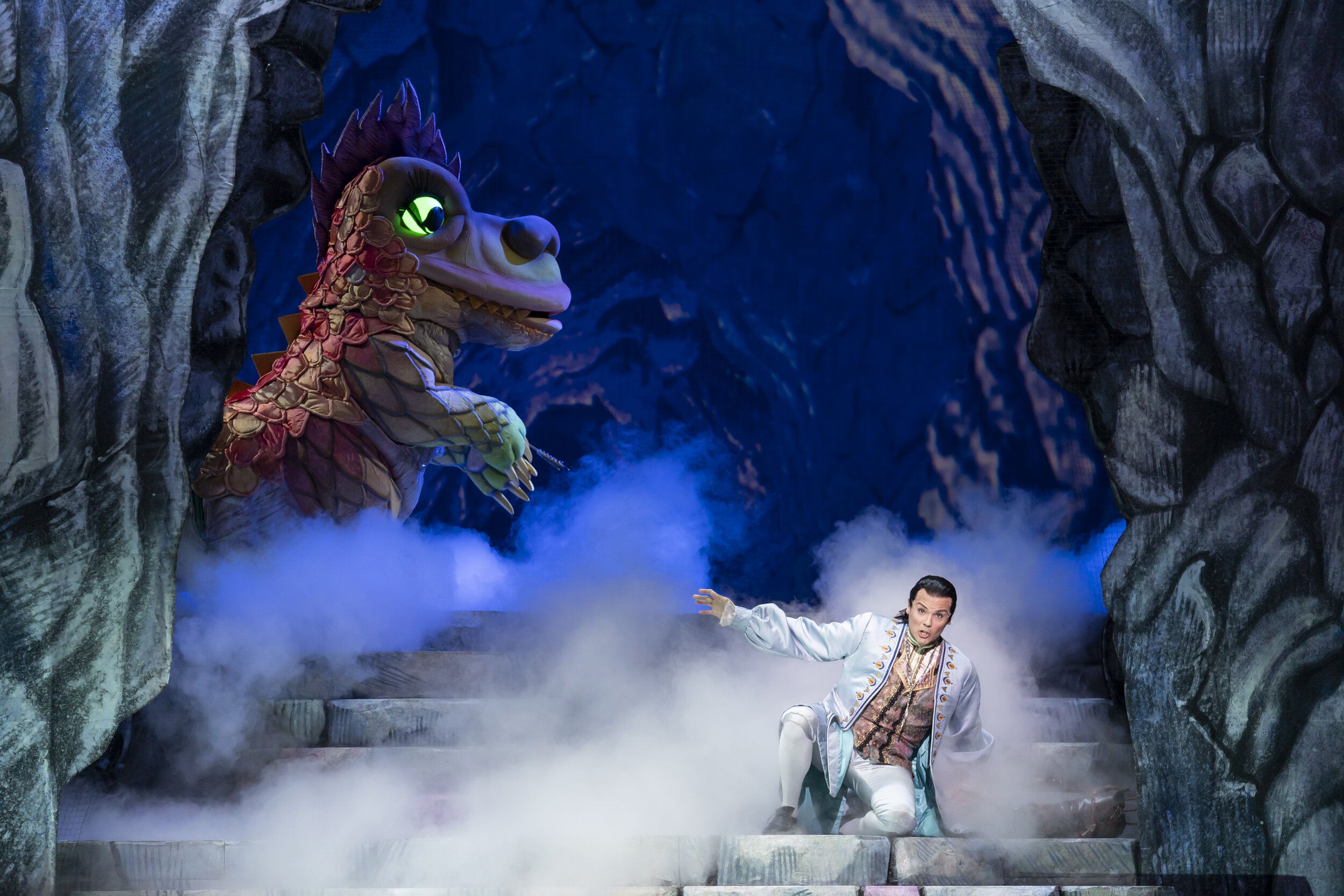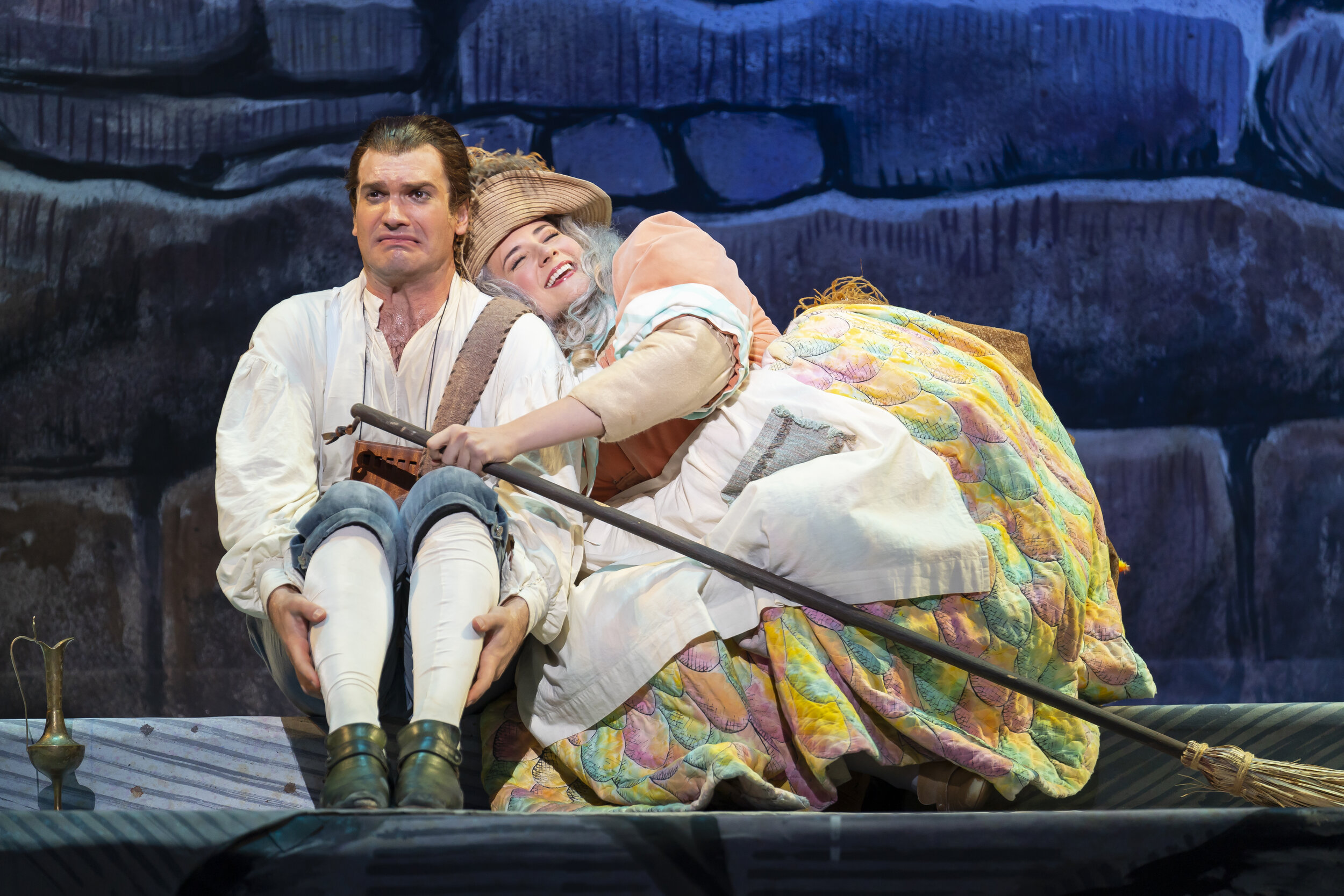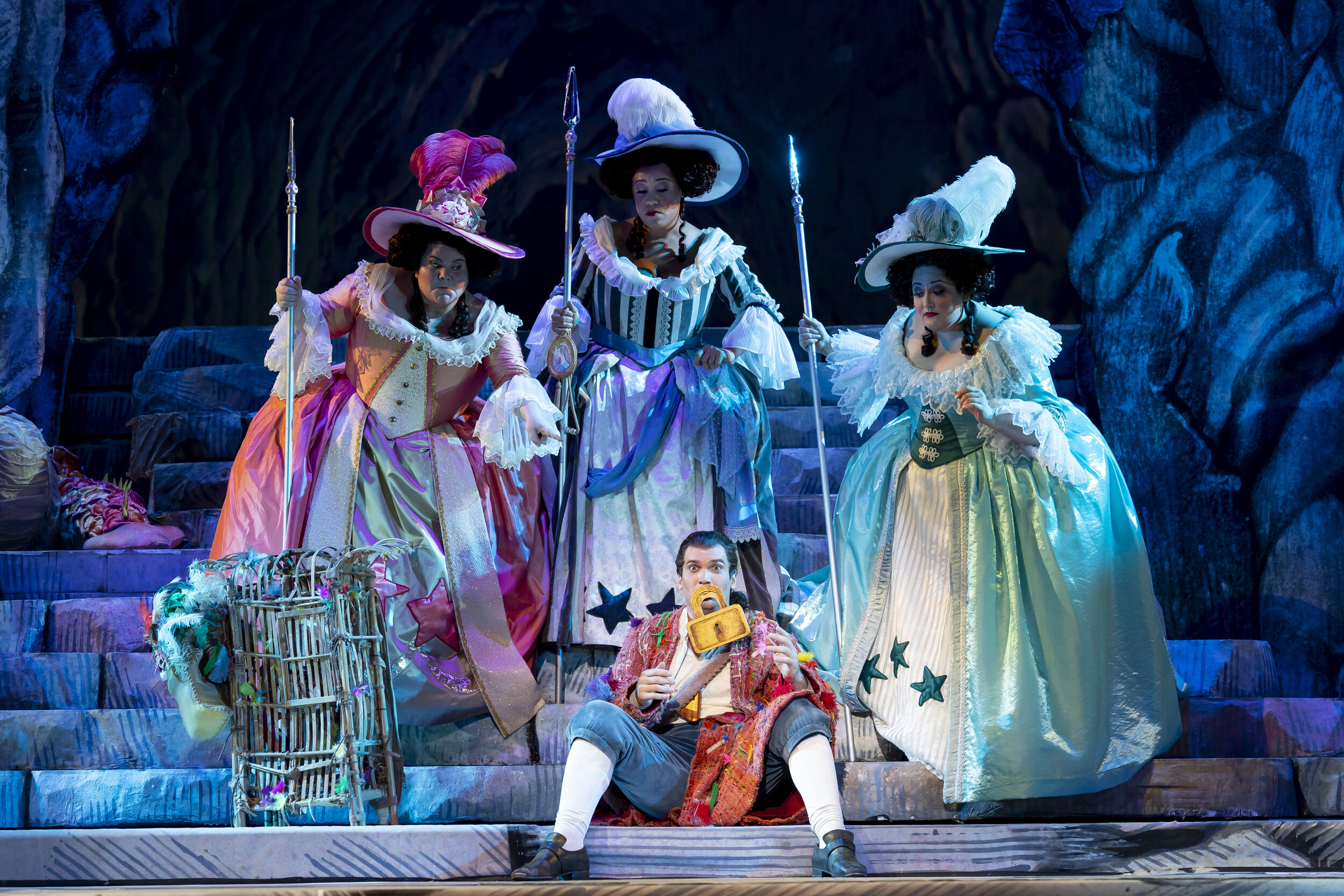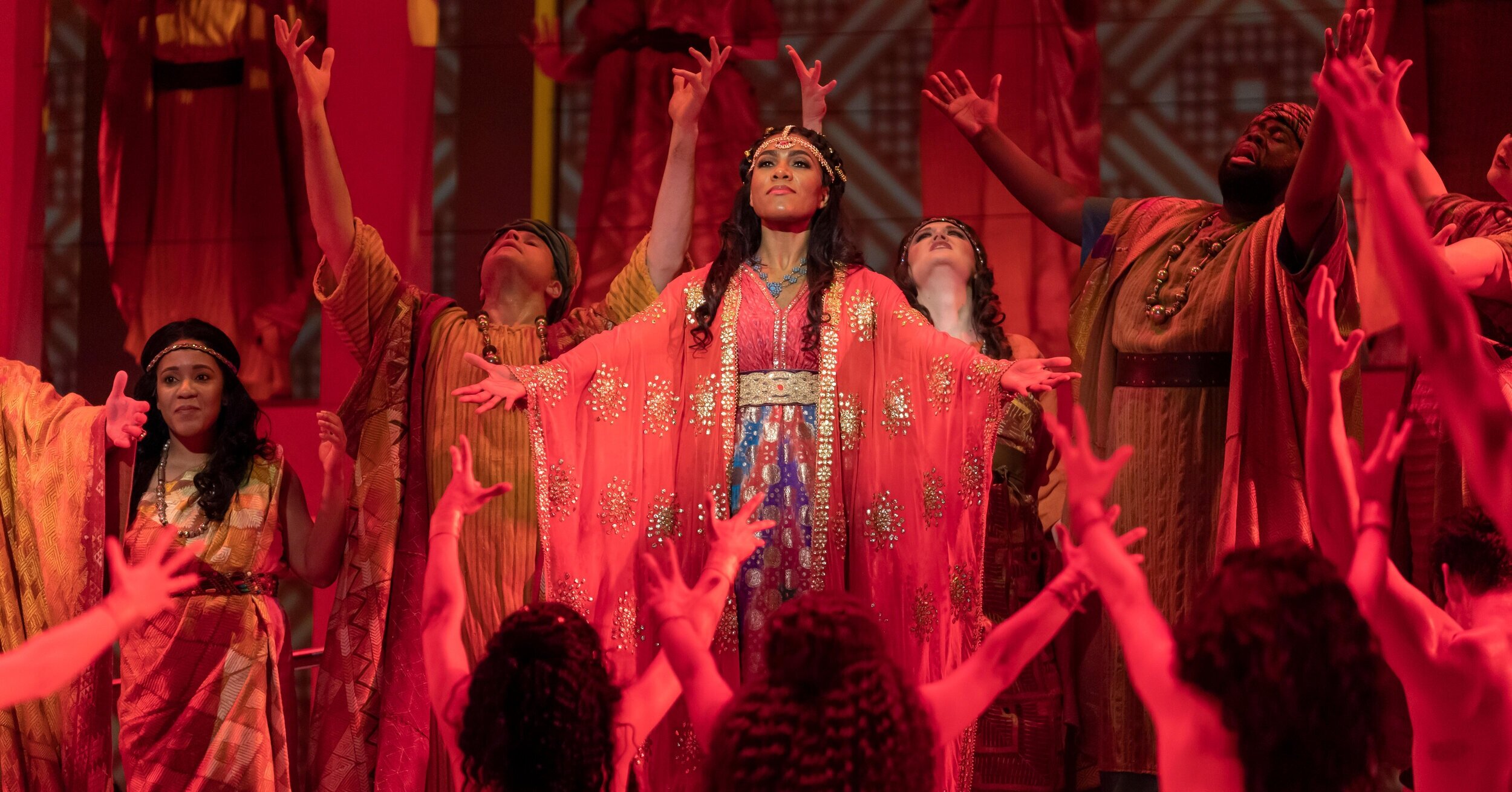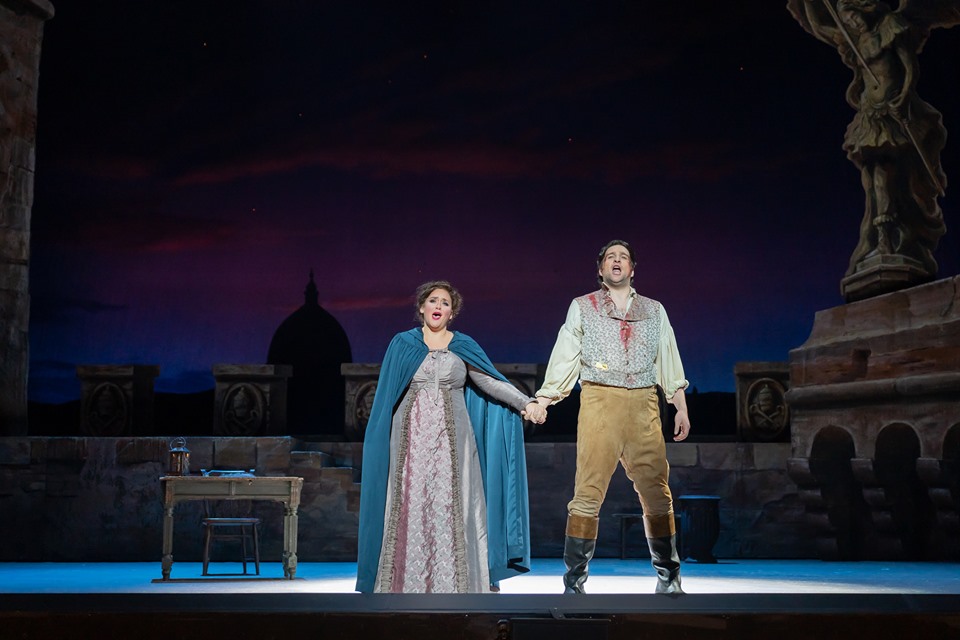More Flute

After wildly creative stagings by Julie Taymor and Barrie Kosky, has what we’ve come to expect from The Magic Flute changed?
Julie Taymoor’s production of Mozart’s The Magic Flute made its debut at the Met in 2004. In November of 2013, the Barrie Kosky/1927 production of Flute made its U.S. debut at Los Angeles Opera, and has traveled to a number of U.S. cities since. Both were unlike Flutes anyone had seen before, bursting with creative ideas and sumptuous design. They were smash hits with critics and audiences alike, and remain extremely popular. In short, they are master classes on how to re-envision opera for contemporary audiences, and make 18th Century opera relevant, even exciting, for both aficionados and newcomers to the art form.
Apart from that, the two productions have no resemblance to each other, which means Mozart’s last opera, composed in 1791, with its silly plot of good guys vs. bad guys, Masonic tests of endurance in order to win love, and other falderal involving dragons, lions, priests and spirits offers plenty to interpret for creative minds. It’s got some pretty good music, including one knockout aria, a delightful duet, and a handful of amusing characters. All of that, combined with its storybook charm, can make it an entertaining night at the opera.
The best thing one can say about the revival of The Magic Flute which opened at Washington National Opera on Saturday night is that it is entertaining enough, though I suspect it will leave many audience members feeling somewhat unimpressed, especially if they’ve seen the Taymor or Kosky productions. There’s nothing exactly wrong here, but there’s little to get excited about. As an example of how large American opera companies can present the operas of Mozart in the 21st Century is has little to say, and some sections are weighed down by a sense of listlessness. Here we are, another season, another Flute.
Some of the weakness is coming from what’s being billed as one of the production’s strengths: Maurice Sendak’s set designs, which originated in the 1970’s for Houston Grand Opera, and were originally seen here in 1981. Despite getting a refresh in 2016 for Portland Opera by WNO’s own Neil Peter Jampolis, the production looks dated, like something from the Jimmy Carter era that’s been pulled out of storage and touched up a bit. That works for rarities like Einstein on the Beach or grand spectacles like the Zefferelli Boheme, and it’s no knock on Sendak’s legacy to acknowledge the staging of Flute has been transformed in the past couple of decades far beyond what’s offered here. The Kennedy Center audience deserves more.
Conductor Eun Sun Kim makes her WNO debut with this production. Over the summer Kim left a great impression on San Francisco Opera audiences conducting a widely acclaimed Rusalka, but here she offers little insight, and some inexplicable moments of outright fuzziness, first in the Overture and then forward at various spots during the first half. Christopher Mattaliano ably directs and John Garofalo created reasonably appropriate projections, along with the scenic and lighting design, but none of it seems particularly inspired to present Mozart as something that matters.
The singers are generally fine, in fact two of them -- David Portillo (Tamino) and Kathryn Lewek (Queen of the Night) -- are singing in The Met’s upcoming Flute after they finish this run (that’s the Taymor Flute, by the way). Some are exceptional, and that would be Sydney Mancasola (Pamina), Michael Adams (Papageno), Alexandria Shiner (1st Lady), Deborah Nansteel (2nd Lady), and Meredith Arwady (3rd Lady). David Cangelosi seems like luxury casting as Monostatos, and Domingo Cafritz artist Alexandra Nowakowski (Papagena) put everyone on notice that she’s one to watch. Wei Wu (Sarastro) is doing more convincing work in the company’s concurrent production of Otello.
Overall: Fair.
Reason(s) to go: Mancasola, Arwady, Shiner, Nansteel, and Adams.
The Magic Flute continues with performances November 4–23, 2019 in the Kennedy Center Opera House.
The performance on Friday, November 22, features singers from the Domingo Cafritz Young Artist program in principal roles.
Performed in English with projected surtitles.
Tickets start at $25 and are available online, in person at the Kennedy Center Box Office, and by calling (202) 467-4600 or (800) 444-1324.

